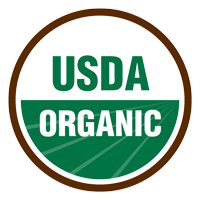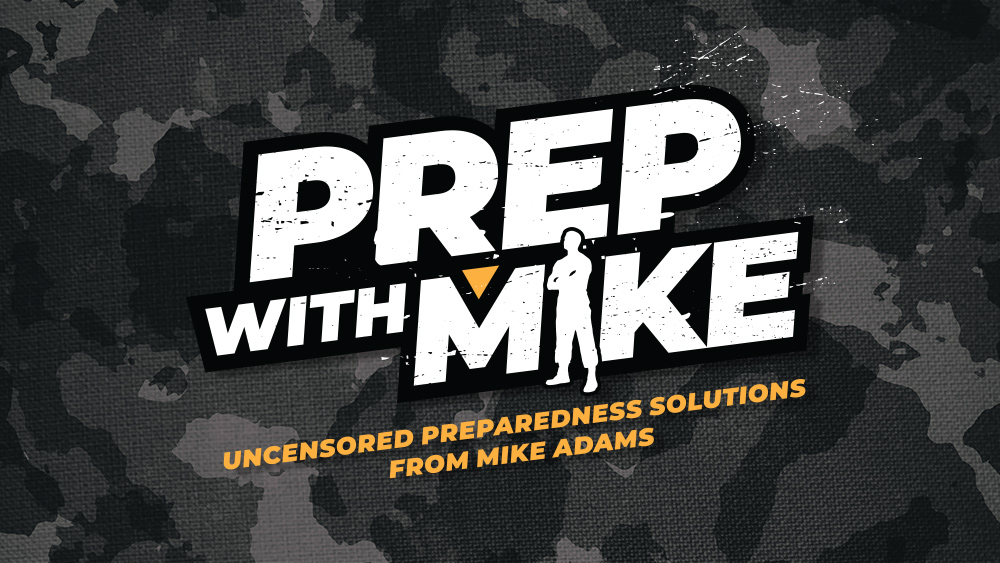Storable food FRAUD taking place nationwide as promoters falsely claim “non-GMO” status for GMO-derived foods
08/18/2020 / By Mike Adams

If you’re buying storable food that you think is “non-GMO,” you’ve probably been hoodwinked.
We’ve become aware that a large number of storable food manufacturers and affiliates are falsely promoting their food products as “non-GMO” even when they are heavily derived from genetically modified corn, soy and canola products.
A good rule of thumb to remember is that if it’s not USDA organic, it’s probably GMO when using any ingredients derived from corn or soy. And nearly all the non-organic storable foods being sold right now are non-organic. They contain GMO-derived ingredients like:
- Textured Vegetable Protein
- Meltodextrin
- Corn syrup solids
- Partially hydrogenated soybean oil
- Modified corn starch
- Hydrogenated canola oil
In addition, the vast majority of non-organic storable foods also contain:
- Yeast extract (a hidden form of MSG)
- Partially-hydrogenated oils that contain trans fats
- Pesticides and herbicides (never labeled)
- Glyphosate residues on certain crops such as oats and legumes
- Artificial coloring chemicals
- Disodium Inosinate or Disodium Guanylate chemicals for butter flavoring
The frightening truth is that as Americans are stocking up on storable food right now, most people are buying processed foods made with GMOs and questionable ingredients that have long been linked to chronic, degenerative health problems such as heart disease, diabetes and cancer.
Some promoters LIE to consumers with deceptive advertising, claiming “non-GMO” status
Many storable food products are sold under affiliate arrangements with promoters, and we’ve observed many cases where promoters claim “non-GMO” status even though the company they represent doesn’t offer any certification of non-GMO status whatsoever.
“Non-GMO” is something that’s easy for promoters to claim because they know most consumers will never ask for proof of non-GMO status. And federal regulators aren’t aggressively enforcing false non-GMO claims made by affiliates. In effect, the very same companies that buy massive quantities of GMO corn, GMO soy and GMO canola are processing those ingredients into storable foods which are promoted by their affiliates as “non-GMO.”
And they’re getting away with it. And the reason they keep promoting these low-quality foods is because low-grade foods have high margins and high profitability.
So promoters deceive their own customers with false claims, but they get paid nicely by the dishonest food manufacturers who look the other way when their own affiliates are openly deceiving their customers with deceptive marketing claims.
How to know for sure if something is non-GMO
In the United States, the best way to know for sure if something is non-GMO is to buy USDA certified organic storable food products. Certified organic always means non-GMO, did you know that? GMOs are not allowed under organic certification.
USDA certified products must display the green circular “USDA organic” logo on their product. This certification is audited each year by a USDA-certified auditor who spot checks a manufacturer’s inventory to make sure they aren’t cheating on non-GMO claims. I know this because I’ve gone through many USDA organic audits of my own food manufacturing facility at HealthRangerStore.com.

The other way to know for sure is to look for the Non-GMO Project Verified certification, which is a private certification that means non-GMO but doesn’t mean organic. So these foods can still be grown with pesticides and glyphosate as long as they aren’t genetically modified.
If you’ve purchased storable food and you’re concerned that it might be GMO because it contains ingredients like maltodextrin, textured vegetable protein or soy derivatives, you should contact the manufacturer and ask for non-GMO certification or USDA organic certification.
If they can’t produce this certification, they don’t have non-GMO products and they’re almost certainly selling you GMOs, and you should demand a refund.
READ the ingredients (and prepare to be shocked)
The No. 1 thing that consumers need to do is read the ingredients labels before buying storable food products. If the labels contain ingredients that are hydrolyzed, autolyzed or hydrogenated, it’s almost certainly highly processed GMO-laden food. Almost without exception, ingredients that come from corn — maltodextrin, corn syrup, citric acid, etc. — are derived from GMO corn.
When you read ingredients labels, you will be absolutely shocked about what’s in most storable food products.
Not surprisingly, many storable food companies go to great lengths to hide their ingredients lists, making them difficult to find on their websites.
Should you keep your non-GMO food?
If you purchased food that was marketed as “non-GMO” and you’ve come to find that it’s actually full of GMOs, you should call the manufacturer and demand a full refund.
They lied to you and misrepresented their product. They owe you a refund and should hope you don’t file a consumer complaint with the FTC.
On the other hand, if you knew it was GMO food from the beginning, then I say yes, keep it. But plan to use it for barter, not for nutrition. In fact, you can’t honestly call it “survival” food when it’s filled with so many questionable ingredients that promote chronic degenerative disease (such as hydrogenated oils).
By definition, shouldn’t “survival” food consist of ingredients that help your body survive?
Whatever storable food you have right now, add to it with certified organic storable foods that you know aren’t GMO. Sadly, this is very difficult to do, given that organic storable food is rather difficult to find. Even my own organic storable food product — known as “Ranger Buckets” — seems to be perpetually out of stock. The minute we manufacture 500 new sets, they’re sold and gone usually in a day or two. (See FoodCollapse.com for more news on the rapidly collapsing food supply situation.)
What I recommend as an alternative is to get some 5-gallon pails (buckets) and go purchase bulk, organic food staples like quinoa, whole wheat, oats, lentils, beans, rice, etc., and start stocking up by the pail. This will give you a tremendous value in terms of total calories and nutritional quality, and many of these items like beans and whole wheat can store for 10 – 20 years in a cool location. (Many storable food companies falsely claim 20 – 25 years of shelf life for processed foods that should technically only claim 2 years of shelf life.)
Note that brown rice has shorter shelf life than white rice, so store white rice for long-term viability. Never store wheat flour; store whole wheat berries and buy a food grinder. The less processed the food is, the longer it stores without going bad. I like to store whole flax seeds, for example, but I would not try to store flax seed flour.
If you want certified organic storable food meals, they’re incredibly difficult to find these days… perhaps impossible. So you’ll need to stock up on organic staples yourself. I’ve found that as long as you have a good seal on the bucket — usually the lid needs to be hammered on with a rubber mallet — it doesn’t need to be nitrogen packed or vacuum packed. The bucket itself is the seal, keeping out air, light and critters. So be sure to fill each bucket to the very top in order to displace as much air as possible.
The bottom line: Do your homework and don’t trust false claims of “non-GMO” storable foods
The bottom line here is that you should never trust promoters of storable food products when they claim their foods are “non-GMO.” Make them prove it. (Trust but verify, as Reagan used to say.)
You will be shocked to discover that a huge number of storable food products sold in America are being fraudulently promoted with deceptive advertising.
And this doesn’t even get into the false claims of “meal” definitions where some companies claim a “meal” is 250 calories, which means they’re giving you a starvation diet as part of their so-called “one year supply” product. (One year for a rat, maybe, but not for a human…)
Sadly, a lot of the storable food being promoted today, even among patriots and conservatives, would barely qualify as prison food. It’s such low quality that any person with even a basic knowledge of nutrition would avoid such products.
Over the years, I’ve found that nutritional ignorance is shockingly common among human beings. I’m not going to name any names here, but I’ve witnessed firsthand popular patriot broadcasters blasting GMOs, Monsanto and Bayer, followed by a commercial break that promotes storable food products made from ingredients derived from GMOs, Monsanto and Bayer.
It’s truly insane. Some of the very same people who warn about globalism and the depopulation agenda are themselves selling food products that enrich globalist, anti-human corporations like Bayer, an offshoot of IG Farben which was part of the Nazi Holocaust regime.
But they earn a lot of profits in promoting these toxic products that enrich evil globalist corporations. With a lot of people, it seems, as long as they’re getting rich, it doesn’t matter what they’re promoting.
Don’t be misled by those people. Do your homework and know what you’re buying. Check the labels and read the ingredients. Look for USDA certified organic labels and buy quality products that can support your survival, not compromise it.
Learn more secrets about survival in my free, nine-hour downloadable audio book called the Global Reset Survival Guide at GlobalReset.news.
Next, I’m releasing another free audiobook called Survival Nutrition, and it’s all about food, nutrients, herbs and natural medicines that can help keep you alive. Watch for that in the next 30 days or so.
Tagged Under: Food storage, GMO, GMOs, ingredients, non-GMO, storable food, survival
RECENT NEWS & ARTICLES
COPYRIGHT © 2017 CHAOS NEWS
















